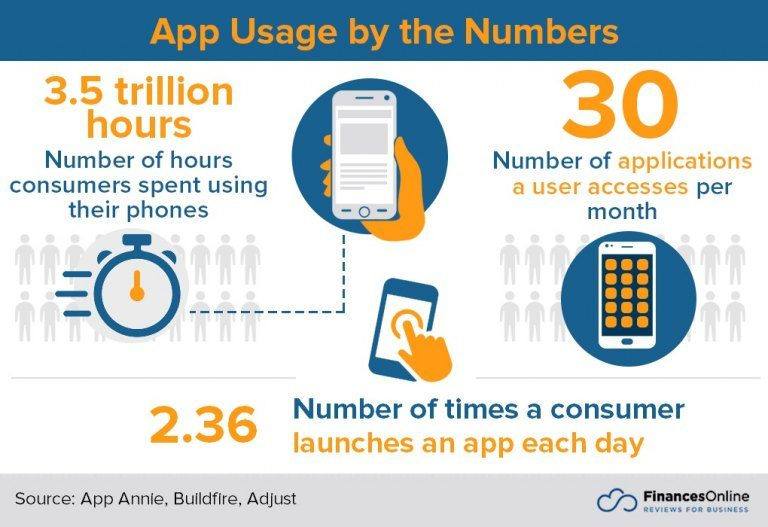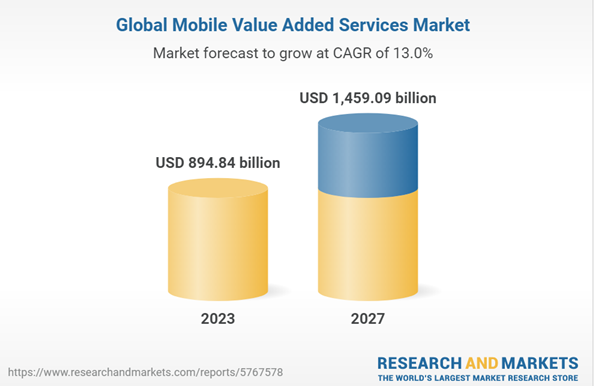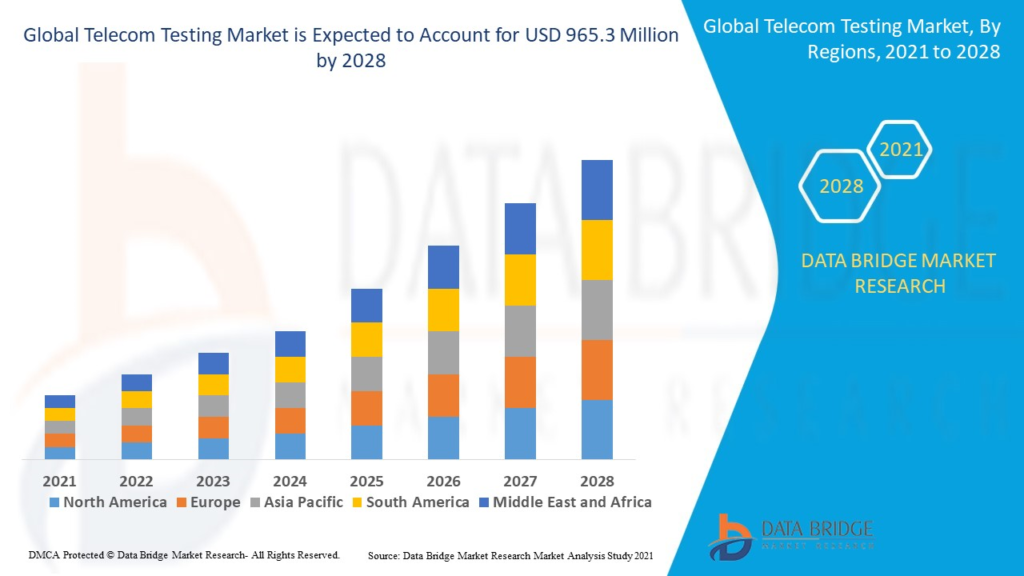In the dynamic and ever-evolving world of telecommunications, app testing has emerged as a cornerstone for ensuring seamless user experiences and robust functionality. As MNOs (Mobile Network Operators), MVNOs (Mobile Virtual Network Operators), CSPs (Communications Service Providers), ISPs (Internet Service Providers) and telcos navigate through digital transformation in 2023 and beyond, the importance of staying ahead of the curve has never been this evident. At Avisys Services, we understand the critical role of managed testing services for telcos in shaping the future of the industry. In this comprehensive guide, we delve into the latest trends, statistics, and real-world use-cases in telecom app testing.
The Telecom Landscape in 2023: A Statistical Overview
The global telecom industry has witnessed significant growth, with the market value set to reach a staggering $3,041.8 billion by the end of 2023. This growth is largely driven by a surge in mobile Internet users, which has increased from 4.39 billion in 2019 to 5.16 billion in 2023. This indicates that 64.5% of the global population now utilizes telecommunication services. This growth has been instrumental in connecting billions of people worldwide and enabling flexible work arrangements for businesses, thereby transforming the way we live and work.

The mobile data services segment, a critical component of the telecom industry, has also seen substantial growth. It has increased from $796.04 billion in 2022 to $894.84 billion in 2023, at a Compound Annual Growth Rate (CAGR) of 12.4%, which is further expected to hit a staggering $1,459.09 billion by 2027. This rapid growth has led to new trends and behaviors among companies and consumers, shaping the telecom industry’s future and setting the stage for further innovation.

The Rising Importance of Telecom App Testing
In today’s digital-first and rapidly evolving telecom industry, telecom testing CoE framework has become a non-negotiable aspect of the app development process for telcos worldwide. It ensures that apps function correctly, provide a seamless user experience, and meet the high standards set by regulatory bodies. With the proliferation of advanced technologies such as 5G/6G, Internet of Things (IoT), Artificial Intelligence (AI), edge computing, and cloud computing, the complexity of telecom apps has increased exponentially. This has made rigorous and comprehensive performance testing services more important than ever.
Read also: The Importance of Testing and Quality Assurance in Telecom Digital Transformation

Telecom managed testing services involve a wide range of activities, including functional testing services, performance testing services, security and API testing services, and usability testing services. These tests help identify and fix any issues and/or bugs before the app is released to the public, ensuring a smooth user experience and reducing the risk of negative reviews, poor user experience or customer churn. Moreover, with the increasing prevalence of cyber threats, security and API testing services have become a crucial aspect of telecom app testing, ensuring that user data is protected and that the app is resistant to various types of cyber attacks.
Use Cases and Scenarios: Telecom App Testing in Action
To better understand the importance of telecom app testing, let’s consider a few real-world scenarios.
- Use Case Scenario 1
Imagine a telecom company launching a new app that allows users to manage their accounts, pay bills, and track data usage. This app needs to function flawlessly across different devices, operating systems, and network conditions. Here, telecom testing CoE services can help identify and fix any issues before the app is released, ensuring a smooth user experience and reducing the risk of negative reviews or customer churn.
This app, named MyTelcoY (dummy), is designed to provide users with a convenient way to manage their accounts, pay their bills, and track their data usage. The goal is to provide a seamless, user-friendly experience that empowers customers and reduces the need for them to contact customer service for basic account management tasks.
MyTelcoY is intended to function flawlessly across a wide range of devices (from the latest iPhone to older Android models), operating systems (iOS, Android, etc.), and network conditions (from high-speed 5G connections to slower 3G networks). This is a challenging task, as each of these factors can introduce unique issues and complexities.
To ensure that MyTelcoY meets these high standards, the company employs telecom testing CoE services or Center of Excellence services. The CoE is a team of testing experts who use their specialized knowledge and state-of-the-art testing tools to thoroughly evaluate the app and identify any potential issues.
The CoE begins by developing a comprehensive testing strategy. This includes defining a wide range of test cases that cover all the main functionalities of MyTelcoY, from logging in to an account, to paying a bill, to checking data usage. These test cases are designed to mimic the actions that real users might take, and they cover a wide range of scenarios and conditions.
Next, the CoE team executes these test cases, using a variety of devices, operating systems, and network conditions. They carefully document the results of each test case, noting any issues or anomalies that arise. For example, they might discover that the app crashes when a user tries to pay a bill on a certain model of Android phone, or that the data usage tracker doesn’t update correctly when the app is used on a slow network connection. These issues would be flagged for the development team to fix.
In addition to functional testing, the testing CoE framework team also conducts performance testing (to ensure the app runs smoothly even under heavy load), usability testing (to ensure the app is easy and intuitive to use), and security testing (to ensure user data is protected).
By leveraging the expertise of the telecom testing CoE framework, the telecom company can ensure that MyTelcoY provides a seamless, user-friendly experience across all devices, operating systems, and network conditions. This not only enhances customer satisfaction and experience but also reduces the risk of negative reviews or customer churn, thereby contributing to the success of the app and the reputation of the telecom company.
Read also: How Telcos are Revolutionizing Customer Experience and Market Domination?
- Use Case Scenario 2
In another scenario, a telecom company might be implementing a new AI-powered customer service chatbot. This chatbot needs to respond correctly to user queries, handle large volumes of requests, and provide a helpful and engaging user experience. Telecom app functional testing services can help ensure that the chatbot functions as intended, providing valuable insights into its performance and identifying areas for improvement.
The Chatbot say ChatX is designed to handle a wide range of tasks, from answering frequently asked questions about the telecom company’s services, to helping users troubleshoot issues, to guiding users through the process of purchasing new services or products. It’s also expected to understand and respond appropriately to a wide variety of user inputs, including both structured queries (“What is my current data usage?”) and unstructured queries (“My internet is slow, can you help?”).
To ensure that ChatX can handle these tasks effectively, the telco employs telecom app functional testing services. These services involve a series of tests designed to evaluate the chatbot’s functionality and performance under various conditions.
The first step in this process is to define a set of test cases that cover all the main functionalities of ChatX. These test cases might include scenarios like:
- A user asking about their current bill
- A user requesting to upgrade their plan
- A user reporting a service outage
Each test case will have an expected outcome, which the chatbot should be able to deliver. Next, the testing team will execute these test cases, carefully documenting the chatbot’s responses. They will evaluate whether the chatbot is able to understand the user’s query, provide a correct and helpful response, and do so in a timely manner. They will also test the chatbot’s ability to handle multiple requests simultaneously, and its ability to maintain a friendly and engaging tone even in challenging situations. This iterative process of testing and improvement will continue until the chatbot is able to handle all test cases effectively.
In addition to these functional tests, the testing team will also conduct performance and load tests to ensure that the chatbot can handle high volumes of requests without any degradation in performance or user experience. They will also conduct security tests to ensure that the chatbot is resistant to various types of cyber attacks and that it handles user data in a secure and compliant manner.
These scenarios highlight the critical role of telecom app testing in ensuring the success of new apps and features. By identifying and fixing issues early in the development process, telecom app performance testing services can save companies time and money, while also ensuring that their apps meet the high standards expected by today’s tech-savvy consumers.
Download our FREE Whitepaper on Telecom TCoE Today
A Snapshot of the Telecom Industry in 2023
As we navigate the telecom landscape in 2023, several key statistics stand out. The United States, for instance, ranks third in the number of smartphone users, with 61% of the U.S. customers using the 5G network. This highlights the rapid adoption of 5G technology and the growing demand for high-speed internet connectivity.
On a global scale, the Asia Pacific region has generated over 33% of the total telecom market share. These statistics underscore the significant role of the Asia Pacific region in the global telecom industry and the increasing importance of mobile technology in our daily lives.
In terms of cloud computing, Google Drive is the most used cloud storage device at 94.44%, and the Cloud Computing Market is worth $371.4 billion. These statistics highlight the increasing importance of cloud computing in the telecom industry and the need for rigorous usability testing services for telcos for their cloud-based telecom apps.
Conclusion: Looking Ahead
As the telecom industry continues to evolve and grow, telecom testing CoE services will remain a critical component for ensuring high-quality user experiences and robust app functionality. At Avisys Services, we’re committed to staying at the forefront of these trends with our best-in-class testing CoE framework, providing our clients with the insights and solutions they need to succeed in this dynamic industry.
The future of the telecom industry is exciting and full of potential. With the rapid adoption of new technologies and the increasing demand for high-quality telecom apps, the importance of comprehensive and effective telecom app testing services has never been more apparent. As we look ahead, we’re excited to continue supporting our clients in navigating this dynamic landscape, helping them rollout high-quality and functional apps that offer sustained customer experience and drive the future of the telecom industry.
Click here to get started with your telecom digital transformation journey with Avisys! You can also write to us at info@avisys.in



